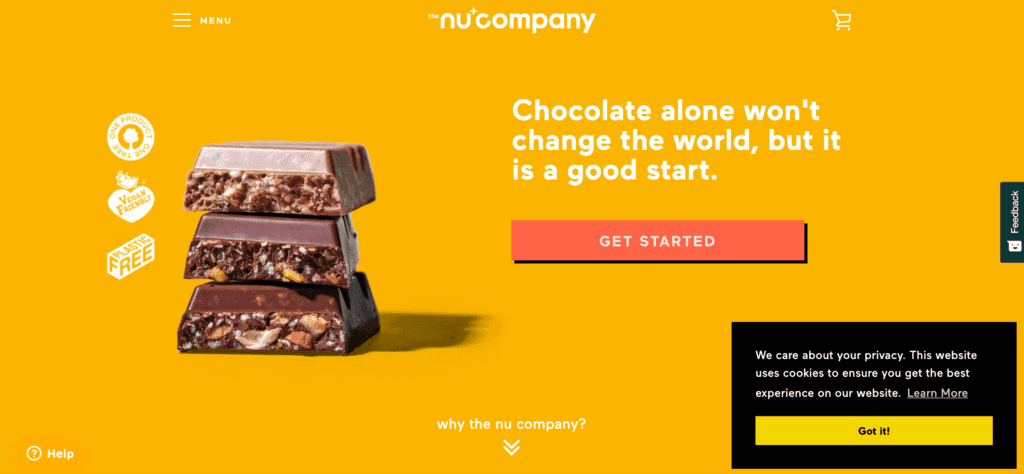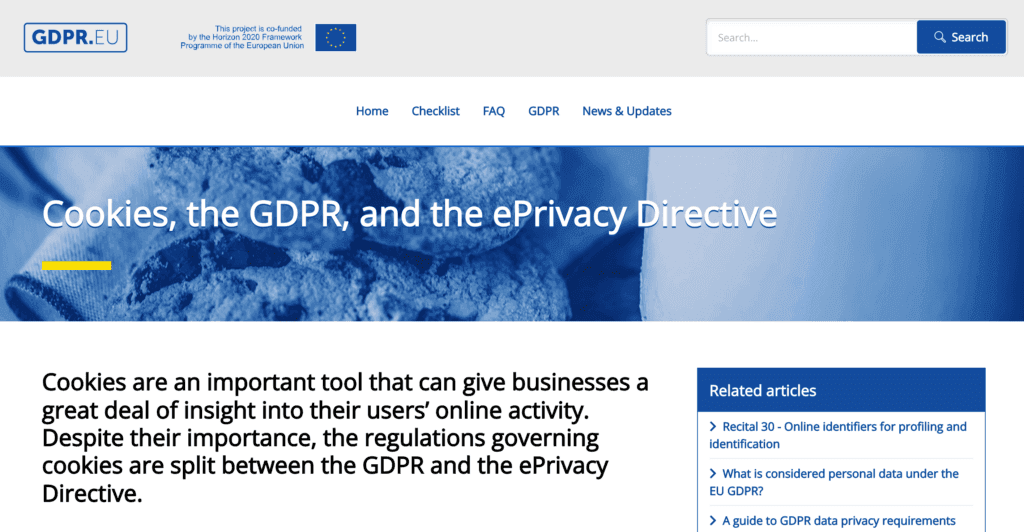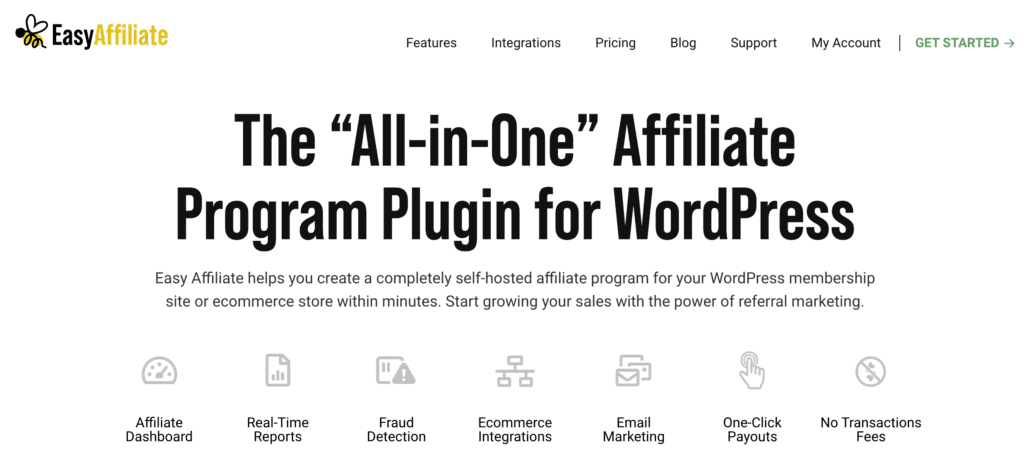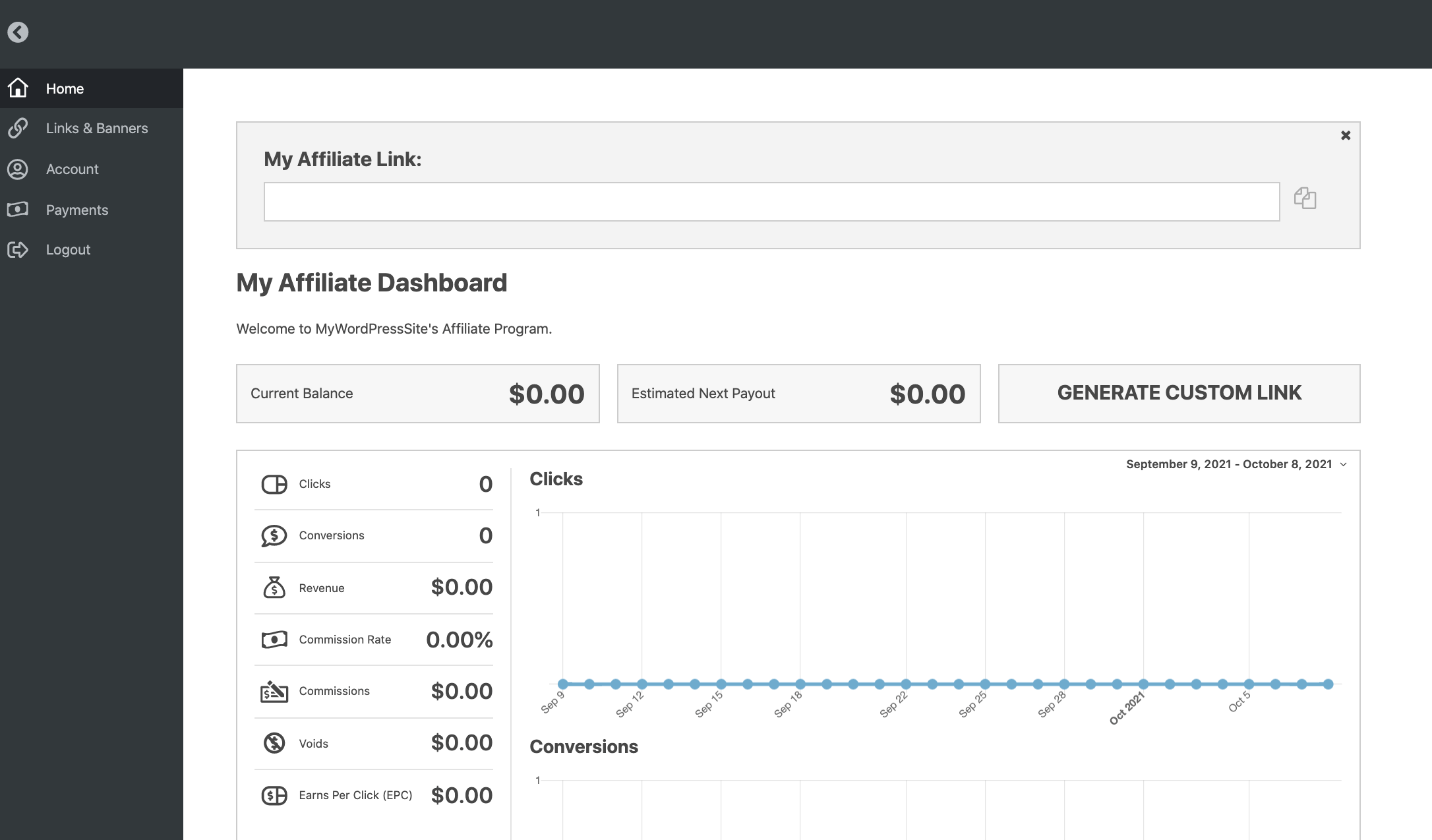[ad_1]
Creating an affiliate marketing program is a powerful way to connect with influencers and introduce your products to an entirely new audience.
However, these programs rely on cookies – and according to the headlines, we’re plunging headfirst into a cookieless future.
Fortunately, we only need to mourn the death of the third-party cookie. First-party cookies are still very much alive, and they’re the future of affiliate marketing.
In this post, we’ll explore the three different types of cookies. We’ll then show you how to prepare your affiliate program and partners for the new first-party era. Let’s get started!
An Introduction to First, Second, and Third-Party Cookies
Cookies have been widely discussed in recent years, particularly following the introduction of the General Data Protection Regulation (GDPR). However, there are actually three kinds of cookies: first, second, and third-party.
Second-party cookies are transferred from one company to another via a data partnership. They are commonly used for cross-site tracking, retargeting, and ad-serving.
Second-party cookies are lesser-known, with some people even doubting their existence.
However, first and third-party cookies are definitely real. While they both take the form of text files that observe visitor behavior, these cookies collect data in very different ways.
First-Party Cookies vs Third-Party Cookies
First-party cookies are created and stored by the websites you visit. They’re commonly used to provide a more personalized experience, such as by auto-filling your password and username.
By contrast, third-party cookies come from external domains. Website owners typically use these cookies to observe consumers and to serve advertisements, particularly in retargeting campaigns.
Most of us have experienced a situation where we search for a product, only to then see that exact same item advertised across unrelated platforms. Social sites such as Facebook are notorious for displaying these strangely-specific ads. When this happens, these advertisements are likely using third-party cookies in an attempt to drive conversions.
Many companies also use third-party cookies to monitor consumer engagement with their advertisements. This data can be invaluable for helping website owners optimize their ads in order to boost conversion rates.
Why First-Party Cookies Are the Future of Affiliate Marketing
Affiliate marketers earn a commission every time someone purchases a product after clicking on one of their links. Traditionally, cookies have enabled merchants to track a shopper’s digital footprint, and identify the people who access their sites via an affiliate link. This ensures they can reward their partners for all of their hard work.
However, in recent years, the use of third-party cookies has become more complicated. In particular, the GDPR states that you must obtain explicit consent from your visitors before placing third-party cookies on their computers.
With internet users growing increasingly concerned about privacy, you should assume that a portion of your audience will opt out of cookies:

To further complicated matters, Google plans to phase out support for third-party cookies by 2022, citing privacy concerns. The search giant has also confirmed that it will not be replacing cookies with an alternate identifier.
With Google Chrome accounting for almost 50% of the web browser market, chances are that a significant percentage of your target audience will be Chrome users.
Meanwhile, Mozilla Firefox and Safari already block third-party tracking. Therefore, you may be wondering how this cookie ban will affect your business.
Fortunately, despite everything you may have read, it’s only third-party cookies that are on the chopping block.
This is because first-party cookies only track activity on websites that the visitor intentionally visits. Even the GDPR states that you don’t need to obtain consent to use first-party cookies:

Most modern browsers do give visitors the option to disable first-party cookies. However, these are accepted by default automatically.
This makes first-party cookies part of the cookieless future. By placing first-party at the heart of your affiliate marketing strategy, you’ll be fully prepared for the upcoming changes.
How to Prepare Your Affiliate Program for the Cookieless Future
Change isn’t easy, and the journey to a cookieless future may have a few bumps along the way. To make the transition easier, now is the time to get comfortable with using first-party cookies.
If you don’t make the switch, then you risk losing all of your affiliate partners once all the major browsers ban third-party cookies.
The good news is that the Easy Affiliate plugin already uses first-party cookies. If you choose this plugin, you can instantly make your affiliate program an attractive option for any potential affiliate partner who’s concerned about the cookieless future.
By prominently advertising your affiliate program as futureproof, you should have no problems securing additional signups:

There’s a lot of confusion surrounding the decision to phase out third-party cookies. For this reason, we recommend reaching out to your affiliates and clarifying that your partnership will be completely unaffected.
The Easy Affiliate dashboard is the perfect place to communicate this info with your partners:

For example, you might create an FAQ covering all of the common concerns relating to your use of cookies. You can then quickly and easily share this resource via the affiliate dashboard, and set your partners’ minds at ease.
Conclusion
A cookieless future may sound like a big problem for affiliate marketers. However, not all cookies are on the chopping block.
To prepare for the upcoming changes, we recommend choosing a plugin that uses first-party cookies, such as Easy Affiliate. You can then advertise your program as first-party and futureproof, encouraging more people to sign up to your affiliate program.
Do you have any questions about preparing your affiliate program for the cookieless future? Let us know in the comments section below!
If you liked this article, follow us on Twitter, Facebook, and LinkedIn. And don’t forget to subscribe in the box below!
[ad_2]




